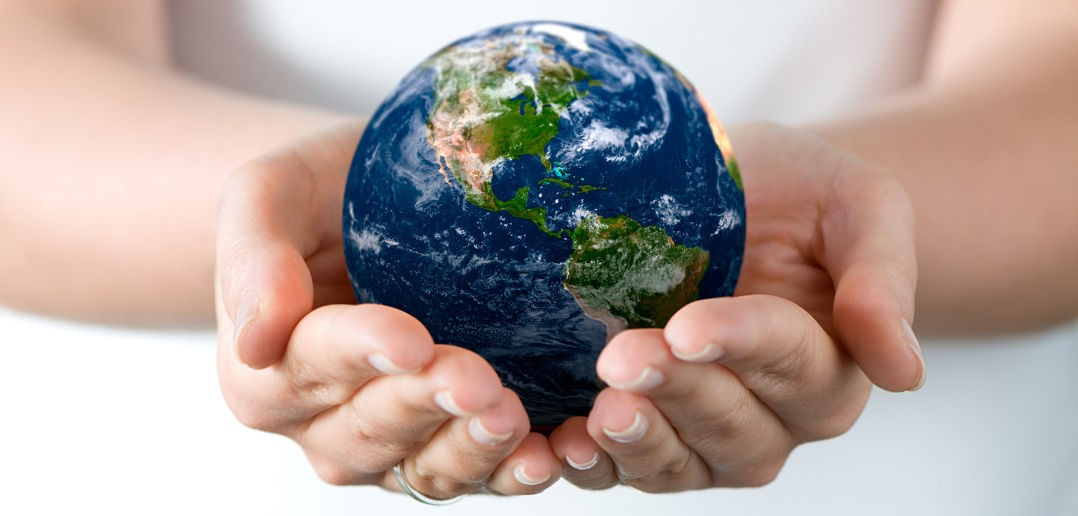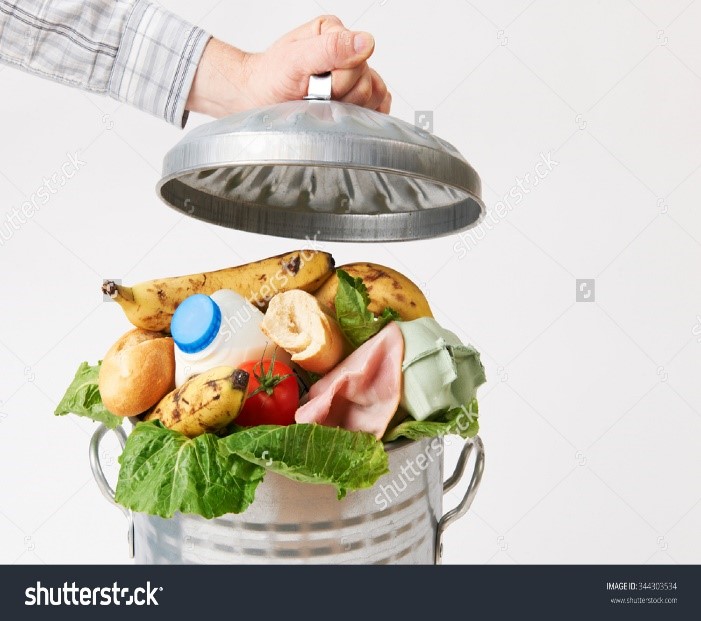Nina Karlström - 02.05.2017 10:31
How can we - on an everyday level - contribute to a sustainable development?
Reduce your waste for a sustainable development! by Livia Kurucz-Morvai, VKS Växjö/Sweden
Everybody can contribute to a sustainable development, I think. You need to do just little things. Every little change does something although not everybody believes it does.
If you will just reduce your waste, you can make a difference and save money, too. It’s important to think about what and how we consume. People in Sweden are good at sorting waste but there are things we can do to decrease the need of sorting.
Here are some things everybody should think about and do in the future:
- Wait some minutes before you buy something and ask yourself: Do I really need this thing?
- Buy refill if it’s possible.
- Buy goods which include as little poison as possible.
- Repair your things instead of buying new things.
- Share your things with your neighbours. Carpooling for example.
- Swap clothes with other people and get new clothes in this way.
- Drink tap water and do NOT buy water in bottles or cans.
- Buy services instead of goods. If you want to buy a birthday present you can give experience gifts instead of the usual package.
- Learn to cook good foods on your leftovers.
The list of things we can do is infinite. As you see they are not so difficult to do. Everybody can include them in their everyday life and contribute to a sustainable development. Everything you do is a good thing. You can’t do it all, but you can always do something!

Posted 15.05.2017 12:11
Stop wasting food by Madalina Matei, LPS Assisi/Italy
Food waste refers to food appropriate for human consumption being discarded, whether or not after it is kept beyond its expiry date or left to spoil. Often this is because food has spoiled but it can be for other reasons such as oversupply in the market, or excessive buying on the part of individual consumers. Global food loss and waste amounts to between one-third and one-half of all food produced, and around 88 million tons of food are wasted annually in the EU, with associated costs estimated at 143 billion euros. Wasting food is not only an ethical and economic issue but it also depletes the environment of limited natural resources. Food is lost or wasted throughout the supply chain, from initial agricultural production down to final household consumption. In medium and high-income countries food is to a significant extent wasted at the consumption stage, meaning that it is discarded even if it is still suitable for human consumption. In low-income countries food is lost mostly during the early and middle stages of the food supply chain; much less food is wasted at consumer level. The causes of food losses and waste in low-income countries are mainly connected to climatic conditions, financial, managerial and technical limitations in harvesting techniques, infrastructure, packaging and marketing systems.
On the contrary, as a country gets richer, one can see a proliferation of food both in shops and in restaurants. So a country like America has twice as much food on its shop shelves and in its restaurants than is actually required to feed the American people, as it is explained at the TED talk entitled "The Global Food Waste Scandal" held by Tristram Stuart. He was born in 1977 in London and he is an international award-winning author, speaker, campaigner and expert on the environmental and social impacts of food waste. He is a regular contributor to newspapers, and radio and television programs in the UK, US and Europe on the subject of food, the environment and freeganism. He also wrote a book about food waste entitled “Uncovering the Global Food Scandal” in 2009.
A serious problem faced in this TED talk concerns the ecological limits that our planet can bear as in the quest to grow more and more food, we cut down forests, extract water from depleting water reserves and we release fossil fuel emissions. But we have to start saving to improve the conditions of our planet. To stop wasting food, an easy place to start are the supermarkets, as they represent a colossal waste of food. However this is only the tip of the iceberg. In fact, while for example in Pakistan in 2008 people were going hungry, in developed countries 13,000 slices of fresh bread were coming out from only one factory every single day.
The best thing to do with food is to eat and enjoy it, and to stop wasting it. For this reason a quest to tackle food waste has kicked off globally feeding 5000 people with food that otherwise would have been wasted only in 2009. A lot of such organizations came together to celebrate food. Because only by stopping food waste we can save our planet for our children and all the other organisms that share our planet with us.

Image taken fromhttps://www.shutterstock.com
Posted 07.06.2017 12:58
Sustainability on our tables by Alessandrelli Lesandrelli Noemi, LSP Assisi/Italy
Barton Seaver is an author, a speaker and a chef. He was chef-owner of the sustainable seafood restaurant “Hook” in Georgetown in 2007 when he shifted his focus away from restaurants and, instead, he started promoting sustainability. He is currently a Senior Advisor of Sustainable Seafood Innovations at the University of New England. In October 2010 he gave a speech which can be found in the Ted Talk conferences on the environment.
According to Barton Seaver sustainability represents the What, the Where and the How of what is caught; Who and Why are even more important. We have to know how people behind our dinner choices impact us; why they fish and how they rely on the bounty of the water, by understanding this we can have the opportunity to restore the eco-system.
We call this “restorative seafood” where restorative stands for the ability to progress, it intensifies our relationship with the ocean that becomes a resource.
Wallet Guides can help us choose among all the sea species: these guides have a green, yellow and red list of sea species; buy green, think twice about yellow, don’t buy red. But it’s not enough to just eat from the green list; for example the Pole-Caught Yellow-fin Tuna, is great for fishermen, and supports local economies. But it is a top predator and if we eat it three times a week we are not doing the oceans or ourselves any favors even if we might still be in the green list.
We have lost sensitivity about our food and we are paying a cost for it, but we are hiding it behind monster profits.
We have damaged our Earth and used the food to harm ourselves in many ways, we have to change what we expect from our food.
It’s not all about the seafood, we must continue to eat the best food possible but with tons of vegetables, studies say that a lot of American grandmothers or grandfathers might be around for another birthday if we included healthier food.
We must change the way we look at our plates, by reducing portions people at Barton’s restaurants started buying appetizers and spent more time enjoying their meals and got healthier.
Every plate at his restaurant is served with consideration for the environment, by diversifying the species they began to restore the eco-system. We have to celebrate the opportunity we have to eat what we eat, if we take only what we need we can begin to share the rest and to restore.
Listening to the conference I realized that we have an opportunity to save the planet. To do it we can start with what we eat: we should take only what we need paying attention to how the food was treated and to the impact that it has on our planet.
This would be a wise choice.
Posted 09.06.2017 11:15